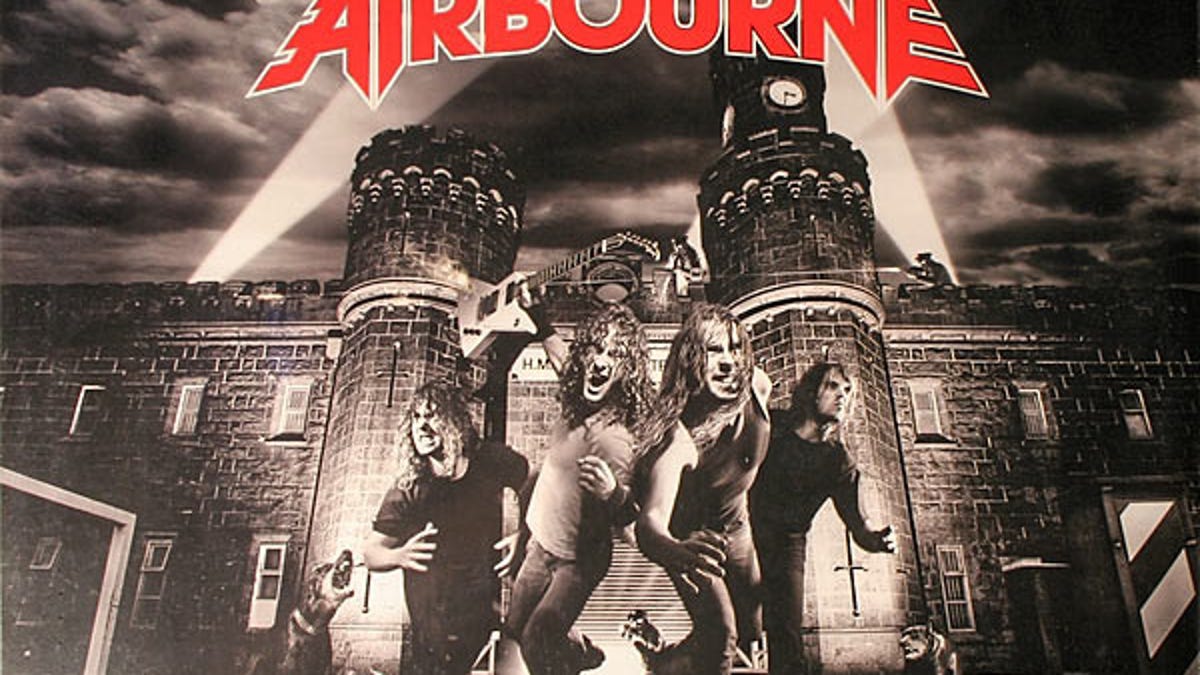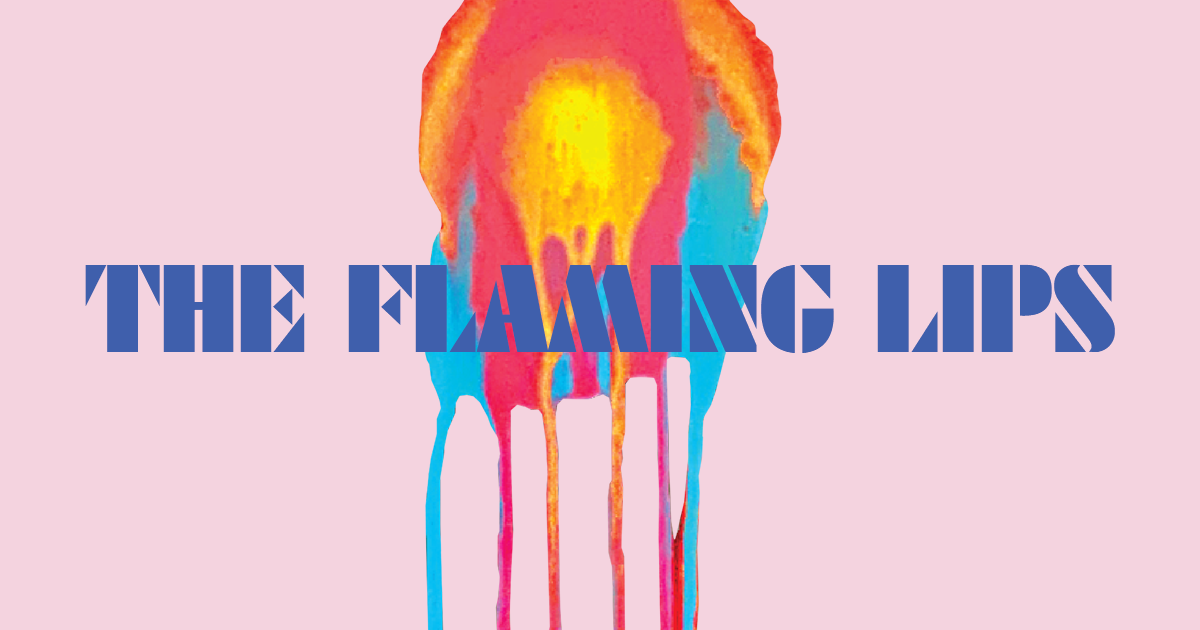
The Flaming Lips: We’re An American Band
The Flaming Lips face the nation’s uncertain future with a dose of revisionist history on their most soul-stirring release since The Soft Bulletin.
This, too, is the story of ‘The Soft Bulletin,’ an album that changed things for the Flaming Lips and their fans. History tells us it came out in 1999, but it exists in a perpetual present. Homepage of the Oklahoma psychedelic alternative rock band the Flaming Lips. Includes information on the band's feature film 'Christmas on Mars' as well as the EP 'Ego Tripping at the Gates of Hell' and a streaming version of 'Yoshimi Battles the Pink Robots'. The Flaming Lips' particular and peculiar genius comes to full fruition on the stupendous The Soft Bulletin. Anyone who had the gumption to actually listen to Zaireeka, a song cycle that could only be heard by playing four CDs at the exact same time on different stereos, knows that head Lip Wayne Coyne and his Oklahoma City brethren had it in them. So has it happened with Soft Bulletin, by The Flaming Lips. The album really sounds strange, weird, and that is because it is a melting pot of different styles of music both in form as in function. The Soft Bulletin is a treasure containing original treatments of country.
Wayne Coyne is standing alone in The Flaming Lips’ Oklahoma City warehouse, surrounded by the band’s long list of decommissioned stage props. Bedazzled unicorns and deflated robots rest lifelessly in the corners, waiting—like most of America—for the pandemic to be over.
“All this stuff gathering dust should be in the back of a truck on the way to a festival in Atlanta or something,” the frontman says while scanning the room.
Indeed, if this were any other summer, Coyne and company— fellow songwriter Steven Drozd, Michael Ivins, Derek Brown, Jake Ingalls, Matt Duckworth and Nicholas Ley—would be on the road, taking their awe-inspiring psychedelic circus from city to city, festival to festival. “It’s the first summer, in probably almost 20 years, that we’re just eating barbecue on the patio and drinking with our families, as opposed to doing that same thing in hotels and airports all summer long,” Coyne observes.
Since forming in 1983 and breaking through years later with hits like “She Don’t Use Jelly” and “Do You Realize??,” The Flaming Lips have long grown into cross-genre touring titans. Yet, curiously enough—despite leading a band that’s hell-bent on offering the most immersive stage show in rock music— Coyne is quick to bring up the fact that he and Drozd are actually natural introverts.
“There was a time in The Flaming Lips, especially in the mid-tolate ‘90s, where we considered just making records without really playing live,” he recalls. “That really appealed to us because we loved making records, but we never really felt that comfortable— and still don’t—in front of an audience. That’s why we have unicorns and lights and all this crazy stuff because it’s like, ‘Oh, we’ve got this crazy stuff for you to watch!’ It’s not about us; it’s about our music and about our unicorns. And don’t get me wrong: I wish this wasn’t happening now; I wish everybody in the world was able to do their job and be secure. But for us, we don’t ever really miss the idea of performing. I don’t get up at parties and play music and sing.”
Yet, while their stage show is currently sitting on ice, The Flaming Lips are still thinking up unique ways to shepherd American Head into the world. A press release deems it a “return to form” for the group, reminiscent of their 1999 masterpiece The Soft Bulletin and centered around the idea of being an “American Band.” Compared to the multicolored, storybook psychedelia of 2019’s King’s Head, the album showcases a more sonically refined version of The Flaming Lips, using a healthy serving of live instrumentation to ruminate on the intertwined nature of drugs, youth and family in the United States.
“A couple of these songs coalesced a couple of years ago, and then Wayne started talking about how the theme could be growing up with our crazy families in the ‘60s and ‘70s: drug tragedies and car wrecks,” Drozd explains. “He wanted to frame it in that vibe because our crazy families are very similar. There’s drug damage and stuff like that. There’s a lot of parallels.”
:format(jpeg):mode_rgb():quality(40)/discogs-images/R-4935098-1437919914-7956.jpeg.jpg)
Then, in classic Flaming Lips style, Coyne amplified those themes into a fictionalized reality. He considered The Flaming Lips in the context of their American Heartland origins.
“In the very beginning of making this album, Steven and I set ourselves up as characters,” Coyne adds. “I used Tom Petty as an example. ‘Let’s be like Tom Petty & The Heartbreakers!’ And none of us are really like Tom Petty, and none of us are really like The Heartbreakers because we just aren’t set up that way. But, we like the idea of a singer-songwriter. There’s a main dude and he sings, and then there’s a great group that plays with him. We just sort of made ourselves like that, even though that’s not really the way we are.”
Coyne furthered the Tom Petty connection by tossing in a nice dose of revisionist history, wondering how the rock legend’s early- ‘80s stop to record in Tulsa, Okla., could have gone awry.
“My brothers and their friends were all into motorcycle gangs and drugs and all kinds of crazy shit, and they could have very easily run into Tom Petty & The Heartbreakers while they were in Tulsa and sold them some acid,” Coyne laughs. “It started speaking to my imagination, sending me down this path of like, ‘What if they did run into my older brothers and some of their really fucked up druggie friends, and they got so wasted on their drugs that all their records never happened? What if they made this great, sad record instead of becoming Tom Petty & The Heartbreakers?’”
“There are so many parts of Oklahoma that are just flat and there’s just nothing, and I definitely hear that in some of our music,” Drozd adds. “One of our songs is called ‘At The Movies On Quaaludes.’ The beginning of that has this Rhodes piano sound. To me, that [recalls] being out in the back of a pickup truck in the ‘70s. The sun’s going down and you’re out in the country getting drunk.”
***
Alongside the pang of classic-rock nostalgia, it’s hard to listen to American Head and not consider how its title, sound and imagery are relevant in the current socio-political era. The music video for “Flowers of Neptune 6,” for example, finds Coyne wrapped in an American flag, walking through a scorched landscape in his famous plastic bubble. As fires burn at the singer’s feet and the bubble furthers his isolation, it’s easy to see the clip as a symbol of America’s never-ending distress in the age of COVID-19 and Black Lives Matter. When those symbolic alignments are brought to Coyne’s attention, however, he explains that the “Flowers of Neptune 6” video was filmed before the COVID-19 crisis became dire. Even the album itself was written well before the world began to fall apart.
“When things like that line up, it really is just a good coincidence, a bad coincidence or indifference,” he says. “I have always gone out in a space bubble to make videos and play shows and, for the longest time, we’ve been trying to shoot a video in a grass fire. When we made [that video], it was the first night of the lockdown, around March 12. So we made all of this in a world that still felt pretty normal. Back in March, we thought, ‘Well, this’ll happen in March and April but, by May, everything’s gonna be back to normal.’ And then all of these things started getting more intense with Black Lives Matter; protests were happening two blocks away from my house. You could have never made music that mirrored that on purpose. I think that’s just what music can do; music can accompany you in almost any situation. Sometimes it really does feel like, ‘This music is perfect for this situation.’ But I wouldn’t make a statement like that on purpose. I do think that, sometimes, you make even greater statements by accident.”

Elsewhere on American Head, the misguided innocence of “You n Me Sellin’ Weed” juxtaposes the feeling of young love with the harshness of working in a slaughterhouse—offering images of blood-filled shoes alongside the burning desire to escape a doomed planet.
Later, “Will You Return/When You Come Down” puts forth a few chilling lines: “Shooting star/ Crashing in your car/ What went wrong/ Now all your friends are gone/ And they scream/ Screaming from beyond/ Hear their song/ Now all your friends are gone.”
“We weren’t thinking about those things because we didn’t know they were going to happen, but it seems like there’s this strange correlation somehow,” Drozd says of the album’s eerily relevant themes. “I don’t know if I would really call this a happy record; it’s not a total downer but it seems to be a soundtrack for just how weird every fucking thing is now.”
Flaming Lips Soft Bulletin
***
According to The Flaming Lips’ longtime label Warner Brothers, American Head is the band’s 21st studio album. Coyne, however, isn’t so sure.
“If I count all the new music we’ve made with Miley Cyrus and all these other weird projects that we’ve done, it’s probably more like 30 or 35,” he chuckles.
American Head also includes a few contributions from Kacey Musgraves, who nodded to The Flaming Lips at Bonnaroo 2019 by closing her Saturday headlining set with “Do You Realize??” After Coyne’s phone exploded with text messages from friends sharing the news, he immediately reached out, wanting to collaborate with the Nashville singer, whose own trippy tendencies seemed to align perfectly with his.
“‘God and the Policeman’ was specifically made for her and I to sing together, and ‘Watching the Lightbugs Glow’ was also made for her. Once we knew that she’d do it, we just made it up. I was like, ‘Oh, yeah, fuck! It really happened! I can’t quite believe it.’”
And it’s that excitement that continues to drive The Flaming Lips, year in and year out. Yes, American Head marks the start of new era for the Oklahoma band. But, undoubtedly, their next album will usher in yet another metamorphosis.

Flaming Lips Soft Bulletin Lyrics
But with equal parts abstraction and clarity, American Head blends psychedelia alongside Americana, unintentionally snapshotting this weird moment in time. With live music in absentia, 2020 is one big cultural reset, and The Flaming Lips are here to soundtrack it every step of the way.
“I’m just a creative person,” Coyne concludes. “So given the chance, I’ll make something—sometimes it’s a painting, sometimes it’s a song and sometimes it’s an album. Whatever the opportunity is, I just go, ‘Wow, OK! I’m glad to do something.’”